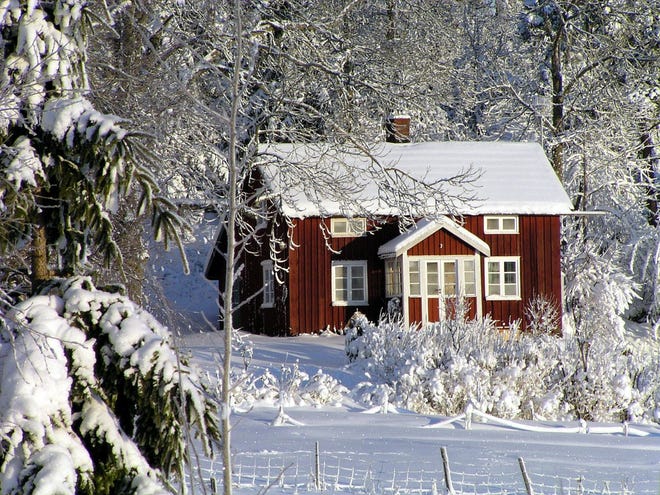OK. I think we can all finally admit that summer is over and it is time to either leave the lake house or even the main house and leave the state entirely for a few months.
But what about the house you leave behind? How can you help him weather the winter rush and be ready for you again in the spring?
Water always comes first, be it from the roof or from broken pipes or the high humidity from crawl spaces and concrete slabs.
Walk around the house and look at the roof and the roof edges. Does everything look solid and intact? Are the gutters cleaned and well attached to the eaves? Do the downpipes lead the water well away from the foundation?
You can stick the ends of the downspout into a plastic pipe lying on the floor to divert rainwater far away from the house.
If you have a flat roof, do you have someone who can safely keep heavy snow loads off?
Heavy accumulations of snow create a layer of melt on the ground in which the water can back up under the roofing materials. Snow can weigh from 4 pounds per cubic foot for fluffy new falls to 25 pounds per cubic foot for windy snow, and your home was not designed to carry that extra “dead” load.
On an average roof, even light, fluffy snow can reach the total weight of a pickup truck!
Do you have a reliable pump in your sump? Ideally, it should be “buffered” by another device that is either battery powered or powered by municipal water pressure. You can also tie the pumps to a wireless network that communicates with your phone.
Stream Labs makes a Wi-Fi system that can be connected to your house water to detect leaks and notify you. The house’s main water valve should be closed during your absence to minimize possible damage from a burst pipe.
Since water is such a problem, it is a good idea to establish an established relationship with a professional plumber who is familiar with your home and its systems.
Pipeline traps throughout the house should be filled with an RV-type antifreeze to prevent them from drying out and allowing sewage to enter. This also includes traps in toilets and in the basement.
Should you drain the water heater? When the main water is turned off, a “can’t hurt, could help” strategy is to shut down the unit and drain it completely.
And what about the stove? Should we leave the heating on in empty apartments?
The boys think you should leave the oven on.
The structure of our houses is mostly wood, and during the wet autumn months this wood absorbs moisture and swells, potentially causing a door or two in the house to stick. The extreme dehydration of winter “steals” moisture from the house as well as from your chapped lips, and prolonged freezing can “shrink” the house frame and cause cracks in drywall and plastering.
In most older homes, we also “anticipate” heat loss through the foundation into the surrounding soil to keep the soil around the house from freezing.
It is better to keep the thermostat on a low level and keep the house above freezing.
Keep the doors around the plumbing fixtures open to allow air to circulate. Do the same in closets and go a step further by pulling boxes and other stored items away from the outside walls to minimize the risk of stagnant air where mold could thrive.
Carefully place rodent bait around the perimeter of the house and in garages and storage sheds. An exterminator once commented that “small animals just seem to know when a place is empty and inviting”.
A well-lit home is generally a safer home, even if it is uninhabited. Buy inexpensive plug-in timers to control various indoor lights in the house. Consider installing outdoor spotlights in the corners of overhangs served by motion sensors.
Several manufacturers today offer wireless cameras that allow you to remotely visually monitor the house, both inside and outside.
Use a written checklist to keep track of everything you do, when you undo, when you return north it is easy and painless.
And the person of trust who checks your roof snow loads? Let them shovel rides and walks too to avoid the appearance of an unoccupied home.
A well-prepared home will get through the cold months without incident and welcome you into spring.
Find professionals to help you with any of these preps at insideoutsideguys.com.
For housing advice and more, listen to the Inside Outside Guys every Saturday and Sunday from 10 a.m. to 12 p.m. on News / Talk 760, WJR-AM, or contact us at insideoutsideguys.com.


Comments are closed.